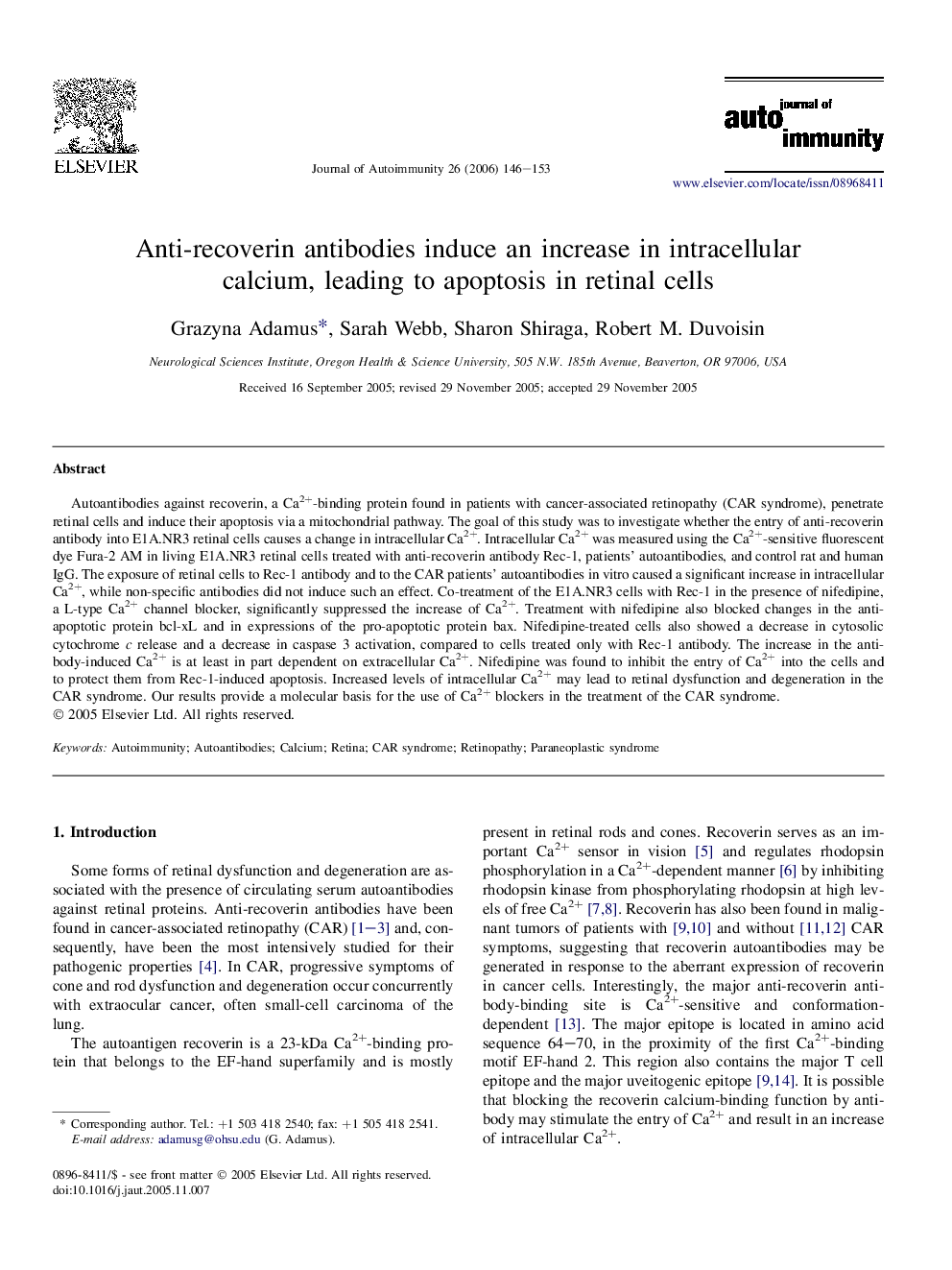| Article ID | Journal | Published Year | Pages | File Type |
|---|---|---|---|---|
| 3368597 | Journal of Autoimmunity | 2006 | 8 Pages |
Autoantibodies against recoverin, a Ca2+-binding protein found in patients with cancer-associated retinopathy (CAR syndrome), penetrate retinal cells and induce their apoptosis via a mitochondrial pathway. The goal of this study was to investigate whether the entry of anti-recoverin antibody into E1A.NR3 retinal cells causes a change in intracellular Ca2+. Intracellular Ca2+ was measured using the Ca2+-sensitive fluorescent dye Fura-2 AM in living E1A.NR3 retinal cells treated with anti-recoverin antibody Rec-1, patients' autoantibodies, and control rat and human IgG. The exposure of retinal cells to Rec-1 antibody and to the CAR patients' autoantibodies in vitro caused a significant increase in intracellular Ca2+, while non-specific antibodies did not induce such an effect. Co-treatment of the E1A.NR3 cells with Rec-1 in the presence of nifedipine, a L-type Ca2+ channel blocker, significantly suppressed the increase of Ca2+. Treatment with nifedipine also blocked changes in the anti-apoptotic protein bcl-xL and in expressions of the pro-apoptotic protein bax. Nifedipine-treated cells also showed a decrease in cytosolic cytochrome c release and a decrease in caspase 3 activation, compared to cells treated only with Rec-1 antibody. The increase in the antibody-induced Ca2+ is at least in part dependent on extracellular Ca2+. Nifedipine was found to inhibit the entry of Ca2+ into the cells and to protect them from Rec-1-induced apoptosis. Increased levels of intracellular Ca2+ may lead to retinal dysfunction and degeneration in the CAR syndrome. Our results provide a molecular basis for the use of Ca2+ blockers in the treatment of the CAR syndrome.
